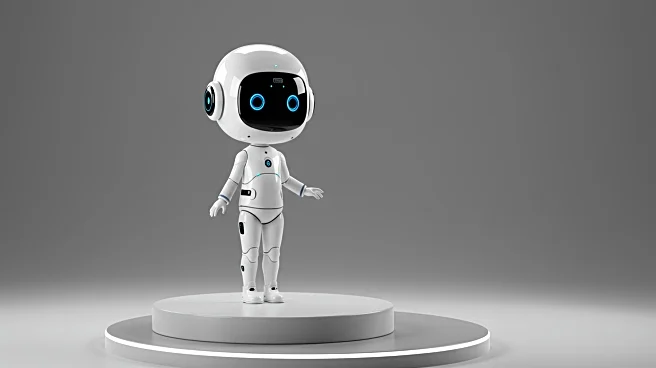What's Happening?
Mattel, the world's largest toy company, has announced a collaboration with OpenAI to integrate artificial intelligence into its iconic Barbie dolls. This partnership aims to create AI-powered toys capable of engaging in genuine conversations with children, moving beyond pre-recorded phrases to more dynamic, context-rich interactions. The envisioned AI Barbie would be able to listen, remember past interactions, and adapt its responses, potentially becoming a child's first emotionally responsive companion outside of family. This development marks a significant shift in the toy industry, leveraging advanced AI technology to enhance playtime experiences.
Why It's Important?
The introduction of AI-powered toys like the proposed AI Barbie could have profound implications for child development. While these toys promise to revolutionize learning and play by providing personalized interactions, they also raise concerns about the potential impact on children's emotional growth. Critics argue that such toys might blur the lines between reality and imagination, potentially stunting the development of empathy and social skills. As children form attachments to AI companions, they may miss out on learning to navigate complex human emotions and relationships, which are crucial for developing resilience and empathy.
What's Next?
As Mattel and OpenAI continue to develop this AI Barbie, they face the challenge of ensuring that interactions remain secure and age-appropriate. The companies must address privacy concerns and the ethical implications of AI in children's toys. Stakeholders, including parents, educators, and child psychologists, will likely scrutinize the rollout of these products, debating their potential benefits and risks. The success of AI Barbie will depend on balancing technological innovation with the developmental needs of children, ensuring that these toys support rather than hinder emotional and social growth.
Beyond the Headlines
The integration of AI into children's toys also highlights broader societal questions about the role of technology in early childhood development. As AI becomes more prevalent in everyday life, understanding its impact on young minds becomes increasingly important. This development could prompt discussions about the ethical use of AI in consumer products, particularly those aimed at vulnerable populations like children. The long-term effects of AI interactions on children's understanding of relationships and empathy could shape future educational and parenting strategies.









